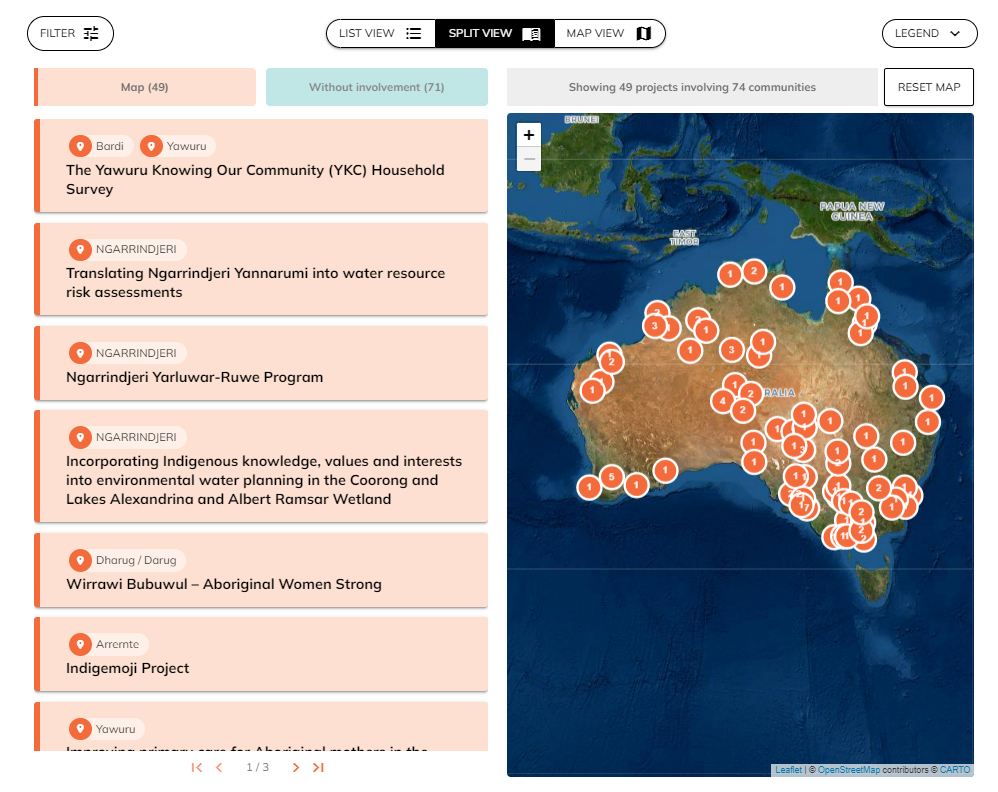Welcome to Yumi Sabe, a knowledge exchange platform developed by AIATSIS designed to showcase the complexity and diversity of Aboriginal and Torres Strait Islander peoples’ research and culture.
Yumi Sabe enables users to explore Indigenous-led projects by region, topic, and language group, offering access to a wide range of research outputs and information at the local level.
It has been designed to support Indigenous communities, researchers, and policymakers.
The platform provides evidence to inform and improve programs and policies; while upholding principles of ethical research, cultural safety, and Indigenous data sovereignty.
Yumi Sabe is regularly updated with new features, ensuring it remains a dynamic and trusted space for collaboration, learning, and informed decision-making.
The aim of Yumi Sabe is to:
- Showcase and support Indigenous-led research.
- Be a powerful resource for Indigenous leadership and community-led decision making.
- Support nation-building through specific nation-based data.
- Champion Indigenous data sovereignty and self-determination.
- Provide links and networks to other data sources and knowledge repositories, including the wide range of information available within AIATSIS.
Yumi Sabe is guided by the following principles
- AIATSIS Code of Ethics for Aboriginal and Torres Strait Islander Research
- United Nations Declaration on the Rights of Indigenous Peoples
- Indigenous Cultural and Intellectual Property (ICIP)
- The Maiam nayri Wingara Indigenous Data Sovereignty Collective Key Principles
- CARE and FAIR Principles
- Closing the Gap Targets and Outcomes
- The AIATSIS Access and Use policy
Contributing to Yumi Sabe
We welcome contributions from researchers and community members to build on the evidence base.
Bringing together different sources of data on a single platform can help communities see what evidence is currently available, where gaps in data exist, and as new research is added, how things have changed over time.
Yumi Sabe can:
- Host your research and data securely in a culturally safe environment
- Make your research more accessible (where appropriate).
- Protect your research and data to the highest standard using up-to-date ICIP and IDG.
Your research could contribute to other Aboriginal and Torres Strait Islander communities to determine their own research priorities and data solutions.

